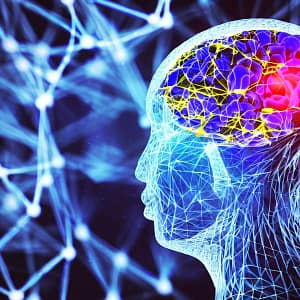Introduction
In today’s ever-evolving technological realm, the phrase “Internet of Things” or IoT has garnered substantial renown. However, what precisely does IoT signify? Within this all-encompassing piece, we will plunge into the complexities of IoT, investigating its meaning, uses, advantages, and the possible influence it might exert on diverse facets of our existence.
Defining Internet of Things: Connecting the Unconnected
Fundamentally, the essence of the Internet of Things revolves around the intricate web of tangible entities or “things.” These entities are imbued with sensors, software, and diverse technologies, enabling them to amass and share data with fellow interconnected contrivances via the internet. The spectrum of these entities spans from commonplace entities like household gadgets and automobiles to industrial apparatuses and wearable innovations.
How Does IoT Work?
The functioning of IoT is orchestrated through a fusion of hardware, software, and connectivity elements. Within these devices, sensors and actuators are ingrained to amass data in real-time, subsequently relayed to a central system or the cloud. This reservoir of data holds the potential for insightful revelations upon analysis and processing. Employing diverse communication protocols, these devices possess the capability to engage and enact astute judgments, all while minimizing the need for uninterrupted human involvement.
Applications of IoT Across Industries
The applications of IoT are vast and diverse, transforming industries in unprecedented ways:
1. Smart Homes
IoT-enabled smart home devices have become increasingly popular. From smart thermostats that adjust temperature settings based on user behavior to voice-activated assistants that control lights and appliances, IoT has revolutionized the way we interact with our living spaces.

2. Healthcare and Wearables
In the healthcare sector, IoT plays a pivotal role in the form of wearable devices that monitor vital signs, track physical activity, and even administer medication reminders. These devices provide healthcare professionals with real-time data, enabling better patient care and proactive treatment strategies.
3. Transportation and Logistics
IoT has disrupted transportation and logistics by enhancing fleet management, optimizing routes, and ensuring the timely delivery of goods. Real-time monitoring of vehicle conditions minimizes maintenance costs and reduces downtime.
4. Agriculture
The realm of transportation and logistics has been revolutionized by IoT, leading to the augmentation of fleet oversight, route streamlining, and the guarantee of punctual goods delivery. Continuous tracking of vehicle states serves to curtail upkeep expenses and diminish periods of inactivity.
5. Industrial Internet of Things (IIoT)
In industries, IoT improves operational efficiency and predictive maintenance. Industrial sensors gather data from machinery, helping to prevent breakdowns and streamline production processes.
Benefits of IoT
The integration of IoT offers several benefits that have a profound impact on various aspects of our lives:
1. Convenience
IoT gadgets elevate convenience by automating functions and offering remote management via mobile applications. Whether it’s fine-tuning home temperatures prior to your return or receiving notifications regarding depleting resources, IoT streamlines everyday schedules.
2. Data-Driven Insights
The extensive array of data amassed by IoT apparatuses furnishes invaluable perceptions, ripe for judicious decision-crafting. This holds particular advantage for enterprises striving to refine operations and elevate customer journeys.
3. Improved Efficiency
Industries and businesses can achieve higher levels of efficiency through IoT-driven automation and real-time monitoring. Predictive maintenance helps prevent costly downtime, while optimized processes save time and resources.
4. Enhanced Safety and Security
IoT bolsters safety by facilitating the surveillance of perilous settings via sensors and cameras. Furthermore, it provides cutting-edge security attributes like biometric validation and systems for remote locking.
The Future of IoT
As technology continues to evolve, the future of IoT appears promising. With the advancement of 5G connectivity, IoT devices will be able to transmit and receive data faster, enabling quicker response times and more seamless interactions between devices.
Conclusion
To wrap up, the Internet of Things (IoT) embodies a transformative alteration in our engagement with technology and the surrounding environment. Its capacity to link and embolden commonplace items bears the promise of restructuring industries, enriching our existence, and propelling innovation to uncharted pinnacles.
As IoT forges ahead, embracing its prospects is poised to undeniably unlock gateways to a future that is more interconnected and astute.



